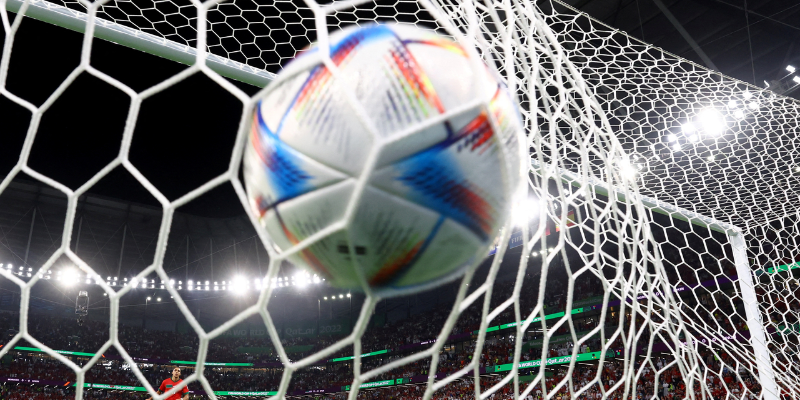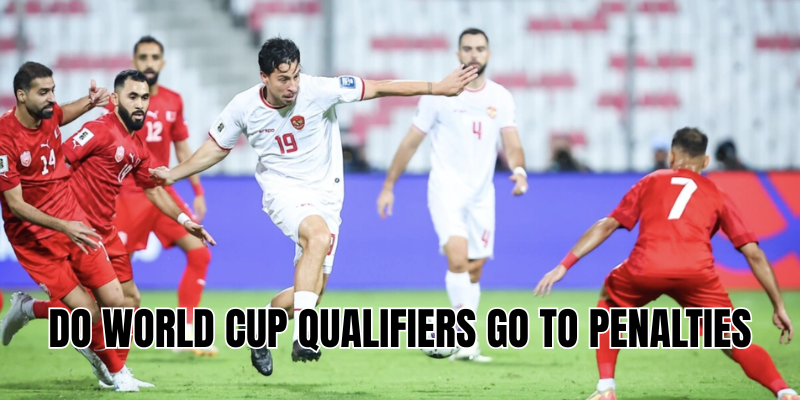When folks ask “do world cup qualifiers go to penalties,” MatsuGoal is here with the straight answer: usually, no — regular World Cup qualifying matches don’t go to penalties. Only in special cases — like knockout or play-off matches — do tied games lead to extra time and possible penalties. Let’s dive into specifics, history, and edge cases.
What is a “qualifier” match

A World Cup qualifier is any match in the regional qualification process (CONMEBOL, UEFA, AFC, CAF, OFC, CONCACAF) played to decide which national teams advance to the World Cup finals. These can be:
- Group-stage matches where teams play home & away (or round-robin in a single venue).
- Play-offs or “inter-confederation” play-offs: matches that decide final spots among teams who didn’t qualify directly.
Standard qualifiers: tied games don’t lead to penalties
For most group matches or early round qualifiers, the format is points-based. Key rules:
- Win = 3 points, Draw = 1, Loss = 0.
- If two teams tie (same score after 90 minutes), match ends as a draw. No extra time. No penalties.
- Goal difference, head-to-head records, goals scored, etc., are used to rank teams in group tables.
Most qualification systems follow this pattern — there’s no need for a winner in a single match; the aggregate over many matches matters more.
When penalties do happen in qualifiers: play-offs & deciding ties

Although most qualifiers end in draws or wins/losses, there are exceptions. Penalties (sometimes preceded by extra time) come into play in specific situations, typically in play-off scenarios. Some examples:
Play-off matches
- Inter-confederation play-offs: For example, the 2022 World Cup had a play-off between Australia (via AFC) and Peru (via CONMEBOL). They played one match; when tied after extra time, it went to penalties.
- Knockout style qualifiers: When two teams tie on aggregate in a two-legged play-off, sometimes extra time + penalties are used.
Regional regulations
- In Women’s European Qualifiers / European play-offs, there are rules that after two legs, if tied, the match proceeds to extra time, and then penalties if needed.
- Some confederations in earlier rounds of qualifying might instantiate penalty shootouts when ties must produce a winner (for instance, a two-leg tie in a preliminary round). One recent example: in the CONCACAF first round for 2026 qualifiers, some two-legged ties ended in penalty shootouts after aggregate draws.
Recent and upcoming qualification formats to note

To understand where penalties might come up soon, or have in recent qualifiers:
- For the 2026 FIFA World Cup, many confederations have altered qualifying formats with more play-offs, centralized venues, and inter-confederation playoffs. In many of these, if tied matches are part of knockouts or last-chance qualifiers, penalties may be built in.
- In CONCACAF 2026 first round, two-leg preliminary ties were resolved by penalties when aggregate score was level.
Why qualifiers usuallyid penalties
Here are reasons FIFA and confederations “prefer” not to use penalties in group or standard qualifiers:
- Avoid overburdening teams with more playing time and fatigue across long qualifying schedules.
- Points system better reflects consistency over many games, rather than “win-or-lose in one moment.”
- Logistical simplicity: draws don’t require extra time or shoot-outs, which would complicate travel, broadcasting, planning.
Summary table: qualifiers vs play-offs
Here’s a quick mental map:
| Type of Match | Is a winner needed? | Goes to extra time / penalties? |
| Group stage or round robin qualifier | No — draw is acceptable | No |
| Two-leg play-off with tied aggregate | Yes — one must advance | Yes (often extra time then penalties) |
| Single-match inter-confederation play-off | Yes | Yes if tied after extra time and rules allow |
Particularly interesting cases / trivia
- In 2022, Australia defeated Peru in a single-leg inter-confederation play-off via a penalty shoot-out after extra time.
- In some CONCACAF preliminary rounds, very low-ranked teams competed in two-leg ties, with penalties deciding winners when aggregate scores were tied.
Conclusion
Do world cup qualifiers go to penalties? In most standard qualifying matches, no — draws stand, no extra time or penalties. But in play-offs or special knockout tiebreakers, yes — penalties are used (often after extra time) to decide who advances. MatsuGoal hopes this clears things up.
If you want, I can pull up a list by confederation of which upcoming qualifiers might go to penalties (UEFA, CAF, etc.), so you know exactly for your favorite team. Want me to do that?







